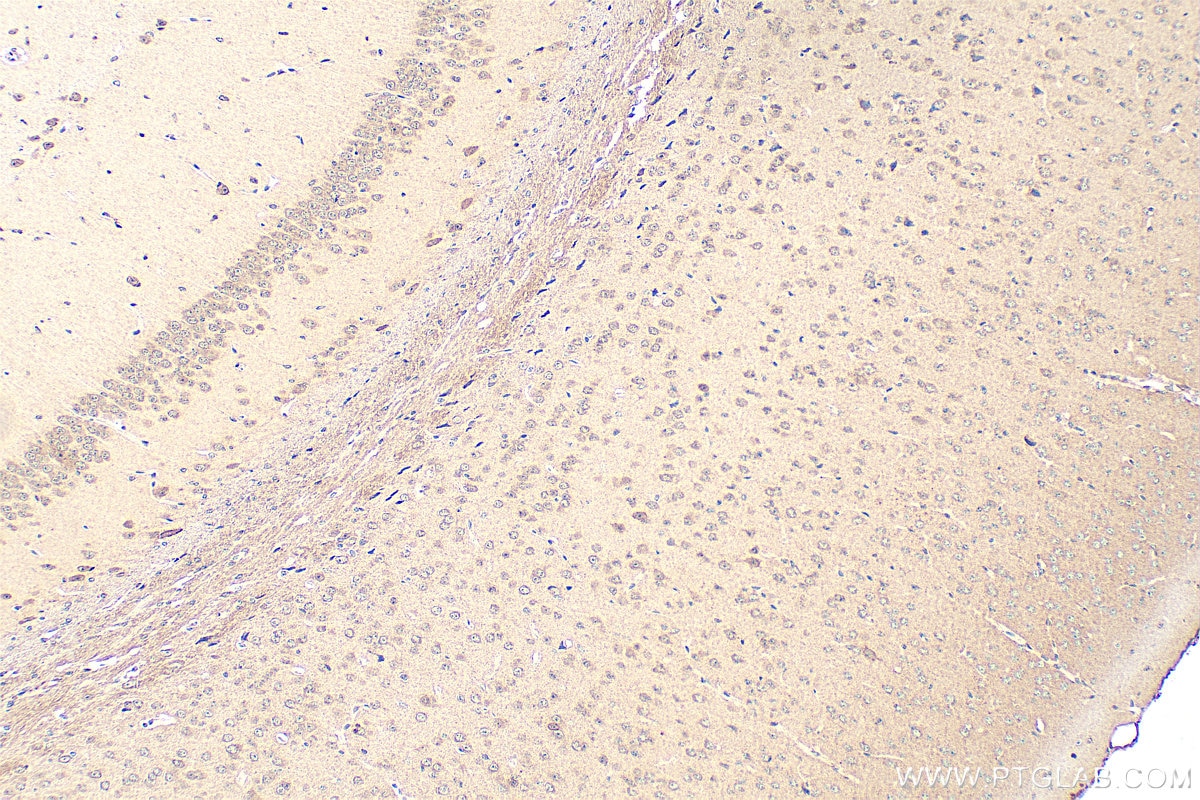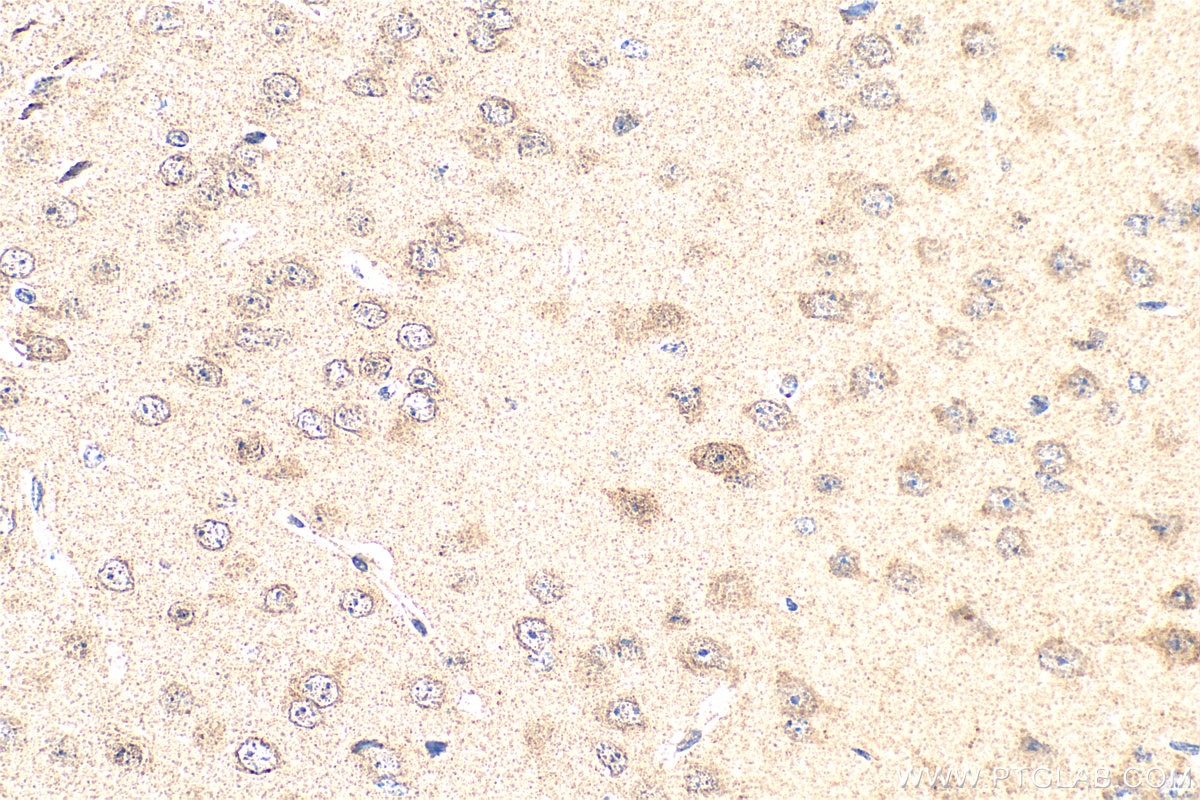PDZD4 Polyklonaler Antikörper
PDZD4 Polyklonal Antikörper für IHC, ELISA
Wirt / Isotyp
Kaninchen / IgG
Getestete Reaktivität
human, Maus
Anwendung
IHC, ELISA
Konjugation
Unkonjugiert
Kat-Nr. : 20167-1-AP
Synonyme
Geprüfte Anwendungen
| Erfolgreiche Detektion in IHC | Maushirngewebe Hinweis: Antigendemaskierung mit TE-Puffer pH 9,0 empfohlen. (*) Wahlweise kann die Antigendemaskierung auch mit Citratpuffer pH 6,0 erfolgen. |
Empfohlene Verdünnung
| Anwendung | Verdünnung |
|---|---|
| Immunhistochemie (IHC) | IHC : 1:50-1:500 |
| It is recommended that this reagent should be titrated in each testing system to obtain optimal results. | |
| Sample-dependent, check data in validation data gallery | |
Produktinformation
20167-1-AP bindet in IHC, ELISA PDZD4 und zeigt Reaktivität mit human, Maus
| Getestete Reaktivität | human, Maus |
| Wirt / Isotyp | Kaninchen / IgG |
| Klonalität | Polyklonal |
| Typ | Antikörper |
| Immunogen | PDZD4 fusion protein Ag13971 |
| Vollständiger Name | PDZ domain containing 4 |
| Berechnetes Molekulargewicht | 769 aa, 86 kDa |
| GenBank-Zugangsnummer | BC002606 |
| Gene symbol | PDZD4 |
| Gene ID (NCBI) | 57595 |
| Konjugation | Unkonjugiert |
| Form | Liquid |
| Reinigungsmethode | Antigen-Affinitätsreinigung |
| Lagerungspuffer | PBS with 0.02% sodium azide and 50% glycerol |
| Lagerungsbedingungen | Bei -20°C lagern. Nach dem Versand ein Jahr lang stabil Aliquotieren ist bei -20oC Lagerung nicht notwendig. 20ul Größen enthalten 0,1% BSA. |
Hintergrundinformationen
PDZD4, also known as KIAA1444, PDZK4, belongs to the PDZ domain family. Members of this family mediate protein-protein interactions through PDZ domains, participating in functions such as cell signal transduction, maintenance of cell polarity, organization of the cytoskeleton, and localization and stability of membrane proteins.
Protokolle
| PRODUKTSPEZIFISCHE PROTOKOLLE | |
|---|---|
| IHC protocol for PDZD4 antibody 20167-1-AP | Protokoll herunterladenl |
| STANDARD-PROTOKOLLE | |
|---|---|
| Klicken Sie hier, um unsere Standardprotokolle anzuzeigen |



